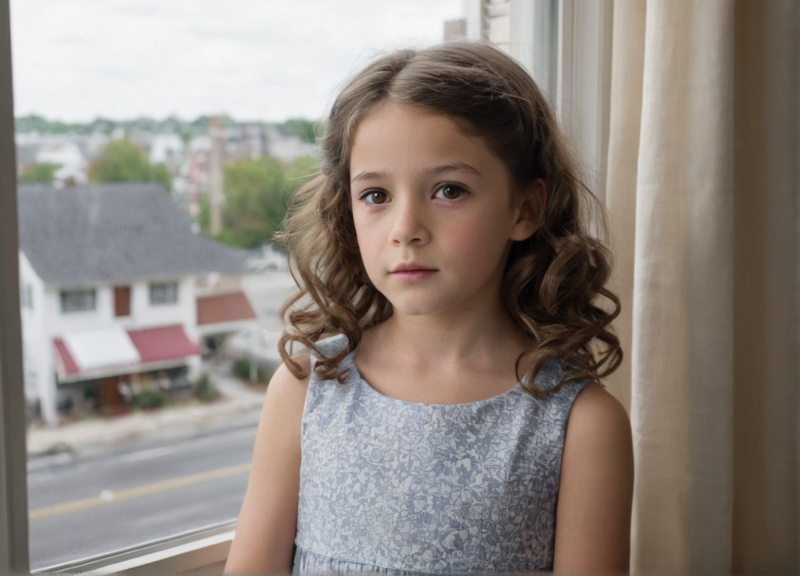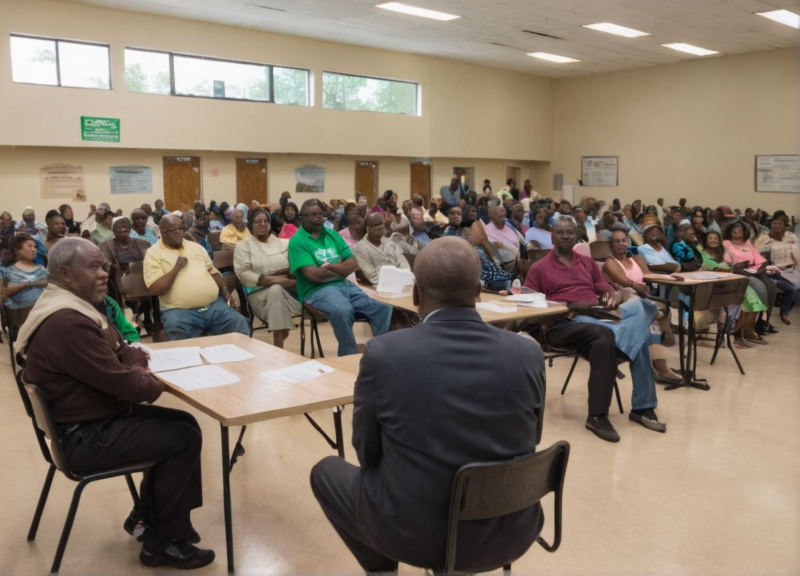He Adopted 12 Kids In A Year. When Authorities Found Out Why, They Launched An Investigation

Joe's neighbors couldn't help but notice the growing number of children arriving at his home each month. While the community admired his generosity, whispers spread about the unusual frequency of new additions to his family. People speculated about his motives, but nothing prepared them for the truth that would soon emerge. One call to 911 by his own kids changed everything.

The first child Joe adopts is a ten-year-old boy named Timmy, who had been in and out of foster care homes. Timmy, with his hopeful eyes and cautious smile, immediately warmed up to Joe. “You’re safe now,” Joe told him, patting his back gently. As Timmy settled into his new home, he couldn’t help but feel a sense of stability he had never known.

Joe's kind demeanor immediately makes Timmy feel safe, and neighbors initially praise Joe for his generosity. “You’ve got a heart of gold, Joe,” Mrs. Thompson said one morning. Timmy, slowly easing into his new life, spent afternoons playing in the yard. Joe often joined him, their laughter echoing through the neighborhood. Everyone believed Joe was doing a wonderful thing for Timmy.

Joe enrolls Timmy in the local school and participates in community events to integrate him. At the school meeting, Joe introduces Timmy to other parents. Mrs. Clark, the teacher, assures Timmy, “We’re all happy to have you here.” Timmy starts to make friends and attends weekend fairs with Joe. The neighborhood watches, convinced that Joe is providing Timmy the family life he always deserved.

As the month ends, Joe quietly visits the orphanage again looking for another child to adopt. “Another one, Joe?” the social worker asks, raising an eyebrow. Joe nods, responding softly, “I have room for one more.” The orphanage staff is touched by his dedication. Little do they know, this is just the beginning of Joe’s frequent visits, each shrouded in mystery.

Timmy feels a creeping unease as Joe returns home with more children, sensing something is off. Late at night, he hears Joe whispering on the phone, the words too muffled to understand. “Is everything alright, Joe?” Timmy asks. Joe smiles, but it doesn’t reach his eyes. “Of course, Timmy,” Joe answers. But the feeling of unease doesn’t go away, lingering in the shadows.

Two months in, Joe brings home a shy eight-year-old girl named Sarah, who clings to Timmy for comfort. “This is Sarah,” Joe introduces, as Timmy holds out a hand. Sarah, barely looking up, squeezes Timmy’s fingers tightly. “It’s okay, we’re friends now,” Timmy assures her. Night after night, Sarah follows Timmy closely, her silent demeanor raising concerns for everyone who meets her.

Sarah barely speaks, and Timmy starts to become more reclusive, alarming the neighbors. Mrs. Thompson waves at Timmy one morning, but he hurriedly looks away. “Something's different,” she comments to a friend. Sarah's silence and Timmy’s withdrawal become the talk of the town. People start wondering why the children seem unsettled, their initial praise for Joe slowly giving way to curiosity and doubt.

Community members discuss increasing donation drives to support Joe, despite the unsettling dynamics. “We should help him more,” suggests Mr. Carter at a town meeting. Funds and supplies pour in, and Joe accepts them graciously. “Thank you all, this means so much,” he tells the crowd. Though conversations over coffee start to include doubts and questions, the drive to support Joe remains strong.

Local social workers grow curious about Joe's recurring adoption applications but he quells their suspicions for now. “You’re doing a wonderful job, Joe,” they say during visits. Joe maintains his calm demeanor, answering questions with practiced ease. “I just have a lot of love to give,” he says humbly. The social workers leave, somewhat reassured, but whispers among them hint at growing skepticism.

Joe's calm replies to the social workers quell their curiosity for now, as he continues his routine. “I want to provide a loving home,” he assures them, maintaining steady eye contact. His confidence and collected demeanor leave little room for doubt. The social workers nod, taking notes but feeling somewhat reassured. As Joe closes the door behind them, he takes a deep breath, ready to continue with his well-rehearsed facade.